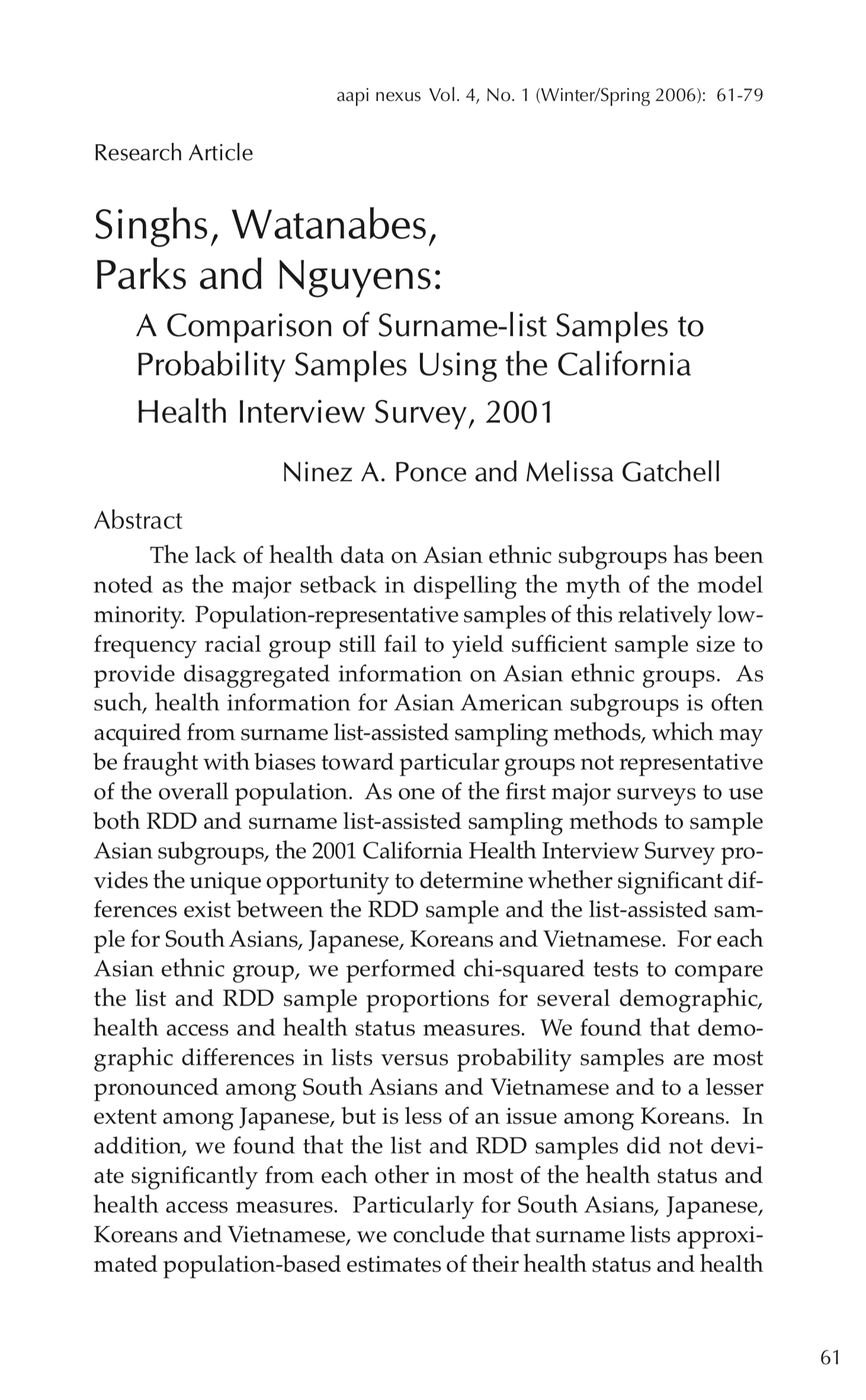“Singhs, Watanabes, Parks and Nguyens: A Comparison of Surname-list Samples to Probability Samples Using the California Health Interview Survey, 2001”
Volume 4:1, p. 61 (2006)
by Ninez Ponce and Melissa Gatchell
ABSTRACT: The lack of health data on Asian ethnic subgroups has been noted as the major setback in dispelling the myth of the model minority. Population-representative samples of this relatively low-frequency racial group still fail to yield sufficient sample size to provide disaggregated information on Asian ethnic groups. As such, health information for Asian American subgroups is often acquired from surname list-assisted sampling methods, which may be fraught with biases toward particular groups not representative of the overall population. As one of the first major surveys to use both RDD and surname list-assisted sampling methods to sample Asian subgroups, the 2001 California Health Interview Survey provides the unique opportunity to determine whether significant differences exist between the RDD sample and the list-assisted sample for South Asians, Japanese, Koreans and Vietnamese. For each Asian ethnic group, we performed chi-squared tests to compare the list and RDD sample proportions for several demographic health access and health status measures. We found that demographic differences in lists versus probability samples are most pronounced among South Asians and Vietnamese and to a lesser extent among Japanese, but it is less of an issue among Koreans. In addition, we found that the list and RDD samples did not deviate significantly from each other in most of the health status and health access measures. Particularly for South Asians, Japanese, Koreans and Vietnamese, we conclude that surname lists approximated population-based estimates of their health status and health access and surname list sampling should continue to be considered as an alternative strategy when cost constraints prohibit investment in probability-based oversamples.
PREVIEW:

 Download
Download
Article Citation:
Ninez Ponce and Melissa Gatchell (2006) Singhs, Watanabes, Parks and Nguyens: A Comparison of Surname-list Samples to Probability Samples Using the California Health Interview Survey, 2001. AAPI Nexus: Policy, Practice and Community: 2006, Vol. 4, No. 1, pp. 61-80.
